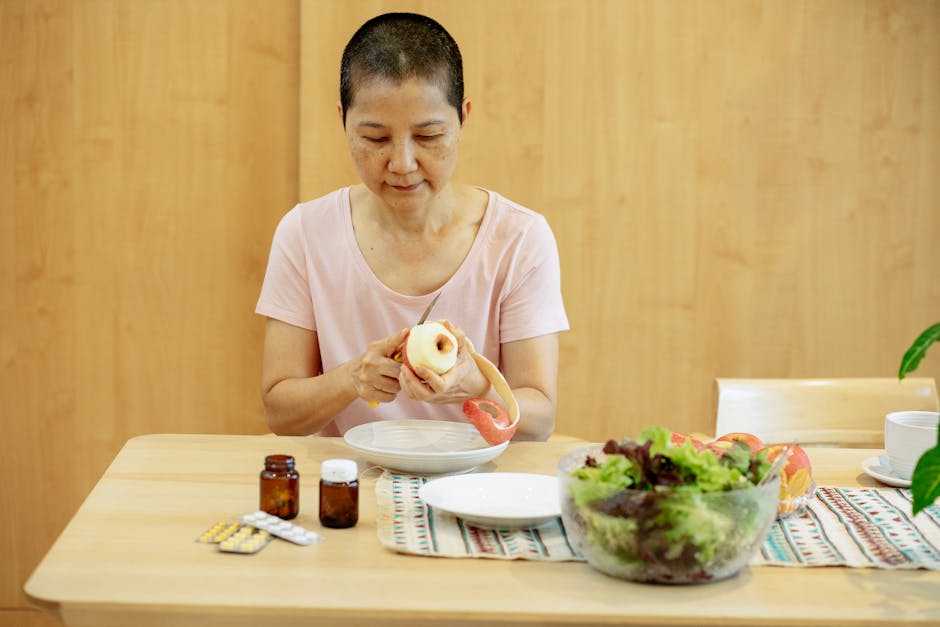The Best Diet for Women as They Age: Fueling Health and Vitality in Your 40s, 50s, and Beyond
The Best Diet for Women as They Age: Fueling Health and Vitality in Your 40s, 50s, and Beyond
As women age, their nutritional needs evolve. What worked in your 20s and 30s might not be optimal for maintaining health and vitality in your 40s, 50s, and beyond. Hormonal shifts, changes in metabolism, and increased risk of certain health conditions necessitate a dietary approach tailored to the unique challenges of aging gracefully. This comprehensive guide explores the best diet for women as they age, focusing on nutrient-rich foods, mindful eating habits, and strategies for long-term well-being.
Understanding the Changing Needs of Women’s Bodies
Menopause, a significant transition in a woman’s life, often begins in the 40s and 50s and brings about various physiological changes. Estrogen levels decline, impacting bone density, cardiovascular health, and metabolism. This decrease can lead to weight gain, increased risk of osteoporosis, and changes in body composition. Therefore, a diet rich in specific nutrients becomes crucial for mitigating these effects.
Key Nutritional Concerns for Aging Women:
- Bone Health: Maintaining strong bones is vital to prevent osteoporosis and fractures. Calcium, vitamin D, and vitamin K are key nutrients for bone health.
- Cardiovascular Health: Heart disease is a leading cause of death in women. A diet low in saturated and trans fats, rich in fiber, and incorporating healthy fats is essential for cardiovascular well-being.
- Weight Management: Metabolism slows down with age, making weight management more challenging. A balanced diet and regular exercise are crucial for maintaining a healthy weight.
- Hormonal Balance: Fluctuations in estrogen levels can impact mood, sleep, and energy levels. A diet rich in phytoestrogens (plant-based estrogens) can help support hormonal balance.
- Cognitive Function: As we age, maintaining cognitive function is paramount. A diet rich in antioxidants and omega-3 fatty acids can support brain health.
The Pillars of a Healthy Diet for Aging Women
Building a healthy diet for aging women revolves around several key principles:

1. Prioritize Nutrient-Dense Foods:
Focus on nutrient-dense foods that pack a nutritional punch per calorie. These include:
- Leafy green vegetables: Spinach, kale, collard greens are excellent sources of vitamins, minerals, and antioxidants.
- Cruciferous vegetables: Broccoli, cauliflower, Brussels sprouts contain beneficial compounds that support overall health.
- Berries: Rich in antioxidants, berries help protect against cell damage and inflammation.
- Fatty fish: Salmon, tuna, and mackerel are excellent sources of omega-3 fatty acids, beneficial for brain and heart health.
- Legumes: Beans, lentils, and chickpeas are excellent sources of protein and fiber.
- Nuts and seeds: Provide healthy fats, protein, and fiber.
- Whole grains: Provide fiber, which aids digestion and helps regulate blood sugar levels.
2. Control Portion Sizes:
As metabolism slows, it’s crucial to be mindful of portion sizes to avoid weight gain. Use smaller plates and practice mindful eating, paying attention to your body’s hunger and fullness cues.
3. Stay Hydrated:
Water is essential for numerous bodily functions. Dehydration can lead to fatigue, constipation, and other health issues. Aim to drink plenty of water throughout the day.
4. Limit Processed Foods, Sugar, and Unhealthy Fats:
Processed foods, sugary drinks, and unhealthy fats contribute to weight gain, inflammation, and various health problems. Minimize consumption of these foods and opt for whole, unprocessed options.
5. Include Foods Rich in Calcium and Vitamin D:
Calcium and vitamin D are vital for maintaining bone density. Good sources include dairy products, fortified plant milks, leafy greens, and fatty fish. Consider supplementation if necessary, after consulting with your doctor.

6. Focus on Foods Rich in Phytoestrogens:
Phytoestrogens are plant-based compounds that mimic estrogen’s effects in the body. Foods rich in phytoestrogens include soy products, flaxseeds, and whole grains. These can help alleviate some of the symptoms of menopause.
Sample Meal Plan for Women Over 40
This is a sample meal plan and should be adjusted based on individual needs and preferences. Consult with a registered dietitian or healthcare professional for personalized dietary advice.
Day 1:
- Breakfast: Oatmeal with berries and nuts
- Lunch: Salad with grilled chicken or fish, mixed greens, and a light vinaigrette
- Dinner: Baked salmon with roasted vegetables
Day 2:
- Breakfast: Greek yogurt with fruit and a sprinkle of granola
- Lunch: Lentil soup with a whole-wheat roll
- Dinner: Chicken stir-fry with brown rice
Day 3:
- Breakfast: Scrambled eggs with spinach and whole-wheat toast
- Lunch: Leftover chicken stir-fry
- Dinner: Vegetarian chili with cornbread
The Importance of Regular Exercise
A healthy diet is only part of the equation. Regular exercise is crucial for maintaining a healthy weight, strengthening bones, and improving cardiovascular health. Aim for at least 150 minutes of moderate-intensity aerobic exercise per week, along with strength training exercises at least twice a week.
Consult a Healthcare Professional
This information is for general knowledge and should not be considered medical advice. Before making significant dietary changes, consult with a registered dietitian or healthcare professional to ensure the diet meets your individual needs and health conditions. They can help you create a personalized plan that addresses your specific concerns and ensures you are getting all the necessary nutrients.

Conclusion
Aging gracefully involves nurturing your body with a diet tailored to your changing needs. By prioritizing nutrient-dense foods, practicing mindful eating, and incorporating regular exercise, women can support their health and vitality well into their later years. Remember to listen to your body, consult healthcare professionals for guidance, and enjoy the journey of healthy aging.






